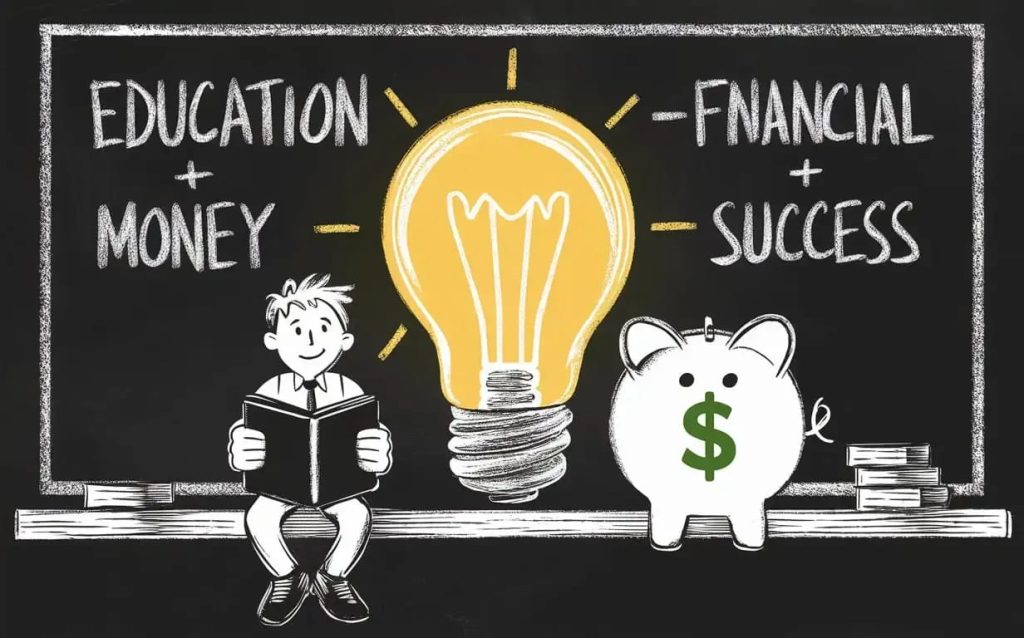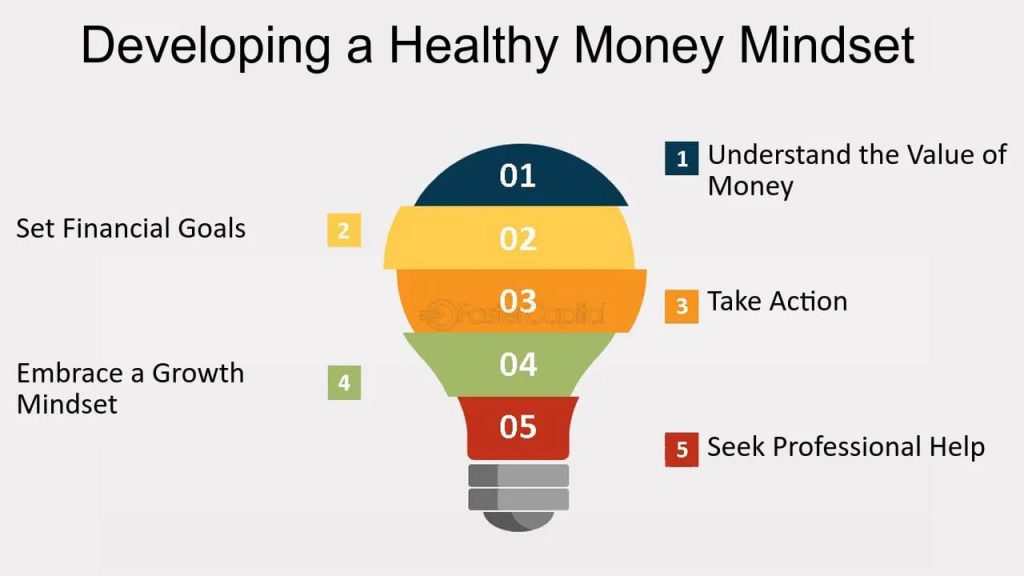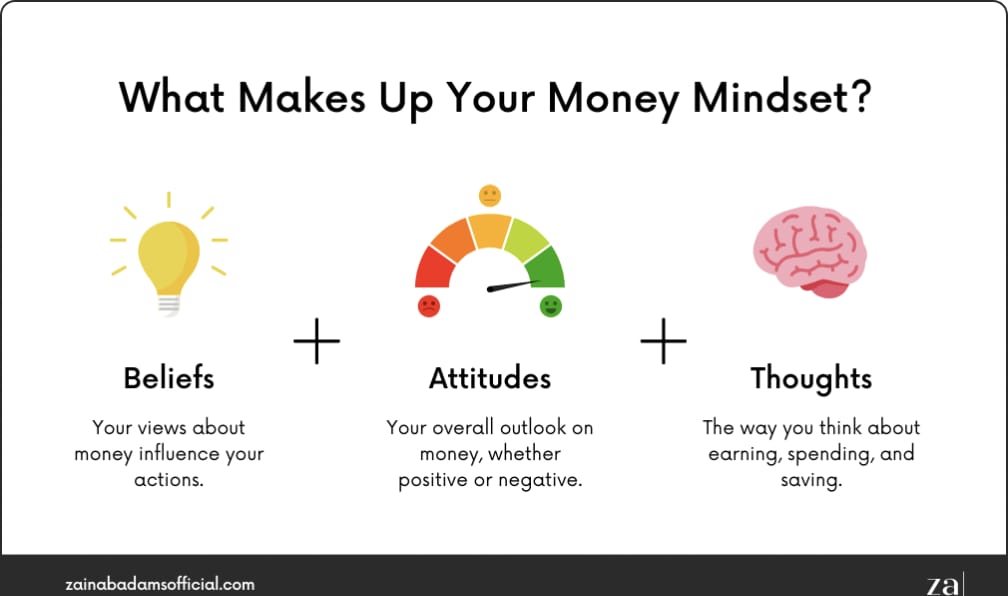Money Mindset: The Foundation of Financial Success
Your money mindset is your unique set of beliefs, attitudes, and perceptions about money. It influences every financial decision you make, from how you earn and spend to how you save and invest. A healthy money mindset can be the key to achieving financial stability and success, while a negative or limiting mindset can keep you stuck in financial challenges.
This comprehensive guide explores what a money mindset is, how it’s formed, common pitfalls, and actionable steps to develop a positive and empowered money mindset.

What Is a Money Mindset?
A money mindset is the lens through which you view money and its role in your life. It encompasses:
Beliefs about money: Do you see money as a tool for freedom or as a source of stress?
Emotional responses: How do you feel when handling money—empowered, anxious, indifferent?
Habits and behaviors: Do you regularly save, budget, and invest, or do you live paycheck to paycheck?
Your mindset governs your financial choices. For example, someone with a scarcity mindset may avoid investing out of fear of loss, while someone with an abundance mindset may actively seek opportunities to grow their wealth.

How Is Your Money Mindset Formed?
Childhood Influences
Parental Attitudes: Growing up in a household where money was a constant source of tension can instill fear or anxiety about finances.
Socioeconomic Environment: If resources were scarce, you might develop a scarcity mindset, believing there’s never enough to go around.
Early Experiences: Positive or negative experiences with earning or losing money can shape your perceptions for life.
Cultural and Social Norms
Society often dictates what is considered “success” financially. Some cultures value saving and frugality, while others emphasize spending as a sign of prosperity.
Personal Experiences
Success: Experiencing financial growth can boost confidence in your ability to manage money.
Failure: Financial setbacks can create fear and hesitation, making you risk-averse.
Media and External Messaging
Advertising and social media often glamorize consumerism, leading to unhealthy spending habits. Conversely, exposure to financial education can positively shape your money mindset.

Common Money Mindset Pitfalls
Scarcity Mindset
Belief: “There’s never enough money.”
Impact: Fear of spending or investing; hoarding resources unnecessarily.
Fixed Mindset
Belief: “I’m bad with money, and I’ll never improve.”
Impact: Avoidance of financial responsibilities; lack of effort to learn.
Fear of Wealth
Belief: “Money will make me greedy or corrupt.”
Impact: Self-sabotaging behaviors like overspending or giving away too much.
Comparison Trap
Belief: “I should have as much money as others.”
Impact: Overspending to “keep up” with peers; neglecting long-term financial goals.
Immediate Gratification
Belief: “I need to enjoy my money now.”
Impact: Accumulating debt; lack of savings for emergencies or retirement.

Transforming Your Money Mindset
Step 1: Awareness of Current Mindset
Reflect on your financial beliefs:
What phrases about money did you hear growing up?
How do you feel about discussing money openly?
Are you comfortable with your current financial habits?
Journaling about your answers can help identify limiting beliefs.
Step 2: Adopt a Growth Mindset
Believe in your ability to improve your financial situation through learning and effort. Replace negative statements like “I’m bad with money” with positive affirmations like “I am learning to manage my finances wisely.”
Step 3: Set Clear Financial Goals
Having specific, measurable goals creates motivation. Examples:
Build an emergency fund of Rs 10 lakhs within one year.
Save 20% of your monthly income for retirement.
Pay off Rs 10 lakhs
in credit card debt within 18 months.
Step 4: Educate Yourself
Knowledge is empowering. Read books, attend workshops, or follow trusted financial advisors to learn about budgeting, investing, and wealth-building strategies.
Step 5: Surround Yourself with Positive Influences
Spend time with people who have a healthy relationship with money. Their habits and attitudes can inspire you to improve your own.
Step 6: Practice Gratitude
Focusing on what you already have shifts your mindset from scarcity to abundance. This doesn’t mean ignoring financial challenges but appreciating progress and opportunities.
Step 7: Create Systems for Success
Develop habits that align with your goals:
Automate savings and bill payments to avoid missing deadlines.
Use budgeting tools to track expenses.
Regularly review your financial goals to stay on track.

The Role of Emotional Intelligence in Money Mindset
Emotions often drive financial decisions. Developing emotional intelligence can help you:
Recognize and manage impulses, like overspending when stressed.
Understand the emotional triggers behind financial habits.
Build resilience after financial setbacks.
Practicing mindfulness and self-reflection can enhance emotional intelligence, enabling better money management.
Money Mindset in Relationships
Money often becomes a source of tension in relationships, but aligning money mindsets can strengthen bonds.
Communicate Openly
Discuss financial goals, habits, and fears with your partner. Honesty fosters trust and collaboration.
Respect Differences
People have different money mindsets based on their upbringing and experiences. Understanding these differences can prevent conflicts.
Set Shared Goals
Work together to create a financial plan that aligns with your collective values, whether it’s saving for a home, starting a business, or planning for retirement.

The Long-Term Impact of a Positive Money Mindset
A healthy money mindset not only improves your financial situation but also enhances your overall quality of life:
Reduced Stress: Financial stability brings peace of mind.
Greater Opportunities: An abundance mindset opens doors to new ventures and investments.
Improved Relationships: Shared financial goals foster teamwork and trust.
Empowerment: Taking control of your finances builds confidence and independence.
https://www.linkedin.com/in/satish-kakri-17224417/
https://nimblefoundation.org/
https://nimblefoundation.org/feedback.html
https://nimblefoundation.org/our-clients.html
Thanks for reading.